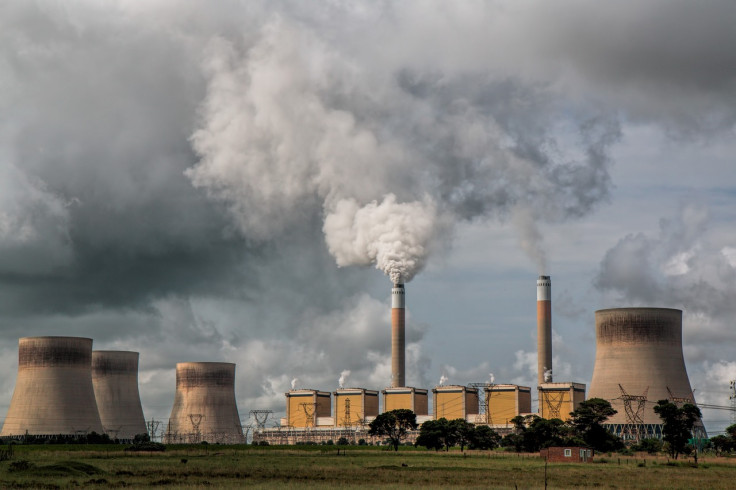Why Sustainable Initiatives For The Chemical Industry's Massive Footprint Have To Be Discussed At COP28
Thought leaders, activists, policymakers, and government officials will meet in Dubai for COP28. The event will impact existing climate legislation and influence new, more aggressive reduction targets to be proposed. However, conferences of such global importance rarely address all polluting activities. With countless industries utilizing carbon-intensive processes, COP28 can only tackle a few problems. Overlooked climate risks may worsen without the public's knowledge if industry insiders don't raise awareness of these problems. That's why chemical separation should be part of the discussion.

Chemical separation doesn't mean much to average people. Yet, chemical engineers and industrial manufacturers know that it's energy-hungry and polluting. The process is necessary for obtaining pure liquid mixtures, but thermal distillation, heating those liquids until they boil, consumes massive amounts of energy. In America alone, 15% of their carbon footprint comes from chemical separation. The world's biggest industries use chemical separation to produce their products. Pharmaceutical companies, semiconductor manufacturers, specialty chemical factories, and food producers are a few examples.
Despite progress toward creating a greener world, the chemical sector has remained largely unchanged. Most carbon-intensive industrial practices are still performed because sustainable alternatives are costly and complicated to scale.
Contrary to the common belief that transportation is the worst CO2 emitter, industrial emissions such as the chemical, metallurgical, and mineral transformation processes, are actually among the highest producers of global greenhouse gas emissions.
Data proves that transportation only causes 14% of all emissions. Industrial emissions create 21%, while electricity and heat production, and land use are the highest producers at 25% and 24% respectively. And the numbers have kept rising over the years. A 2021 snapshot of global emissions by sector shows that industry and electricity are tied for the highest spot at 29%.
What can be done to reduce the prevalence of industrial emissions? If petroleum, chemical, and paper manufacturing became more sustainable, it would eliminate 100 million tons of CO2 emissions and about $4 billion in annual energy costs.
Amongst the most promising solutions, SepPure Technologies, a chemical manufacturing company based in Singapore and Canada, has discovered a sustainable alternative to carbon-intensive distillation processes. By utilizing chemical-resistant nanofiltration membranes, SepPure Technologies' sustainable process separates chemical mixtures at the molecular level with zero heat needed.
Dr. Mohammed Farahani founded SepPure Technologies in 2018 with the dream of creating a revolutionary chemical separation technology that would emulate Reverse Osmosis' impact on water purification.
With the help of a long list of prominent investors, SepPure Technologies achieved this demanding feat. The company received investment from the Singaporean government through SGInnovate, a key financier of SepPure's commercialization efforts.
The company obtained several other investments. In 2021, SepPure was given a $2.8 million project from the Canadian government. SepPure's technology was meant to be utilized in regional vegetable oil refining facilities. Two years later, SepPure secured $12 million from a funding round led by SOSV and participated in by Anji Microelectronics, Enterprise Singapore, EPS Ventures, ID Capital, and Real Tech Holding.
Unlike other green chemical technologies, SepPure's GreenMem® process reduces costs and emissions immediately. After being retrofitted into existing industrial systems, GreenMem® lowers energy costs and associated emissions by up to 90% and halves operation costs. Additionally, these membranes with nano-sized pores withstand harsh conditions without damage and cover five times more surface area thanks to their hollow fiber configuration. This results in a chemical separation process that's 20 times faster than conventional practices. Because of these impressive capabilities, GreenMem® inventory and distribution have scaled rapidly. SepPure Technologies will soon offer this product online, selling to facilities worldwide and shrinking industrial emissions.
To bring more awareness to sustainable chemical separation processes, a SepPure Technologies team will attend COP28. Dr. Farahani sees this as a crucial step to fostering widespread adoption.
"Not enough people see chemical separation as a leading producer of CO2 emissions," says Dr. Farahani. "Its footprint isn't as large as other sectors, but it's one of the largest industries, and it's not receiving as much attention as it needs to. I hope that SepPure Technologies can redirect the focus back to the chemical industry as no other offering is as effective and eco-friendly as GreenMem®."
At COP 28 and beyond our hopes are placed on human ingenuity to solve the biggest challenge of our times. But we should not forget that to funnel resources to more impactful needle movers a solid baseline assessing the magnitude of each challenge is of the essence.
© Copyright IBTimes 2025. All rights reserved.





















